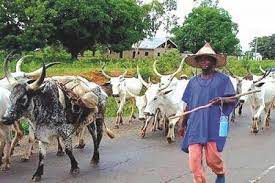
The federal governs has woken up to the importance of including the nomads in their plans so that they too can have access to both formal and non-formal education. This was promoted by the 1979 constitution, as well as, the National Policy on Education.
Both documents urge the federal government to make available an equal educational opportunity to every Nigerian, be it a nomad or otherwise.
In 1989, the federal government went ahead to establish the National Commission for Nomadic Education (NCNE) and the commission has the duty of implementing the Nomadic Education Program (NEP), which is focused on the provision of quality basic education to the nomads and widening of access to the formal education.
The main aim is to increase their literacy level and enable them to become competent in various fields of human endeavor. This way, the nomads can also become participants in the process of nation-building.
The commission put together several innovative strategies and appreciates which are categorized as follows:
- Integration of nomads into national life via qualitative, functional, relevant, and basic education
- Raise both income and productivity levels of the nomads and also increase their contribution to the national economy by making provision for access to skills and knowledge
- Formulation of policies and guidelines in everything that has to do with the nomads and their educational needs.
- Fund provision for personal development and research to bring about nomadic education improvement in Nigeria.
- Nomadic education program development
- Provision of instructional materials, equipment, facilities, classrooms, and other things for facilitating nomadic education
The goals and objectives of the NCNE
The purpose of the NCNE is to establish, manage and maintain primary schools in the areas where nomads settle down and in grazing reserves. The focus is to also determine the skill stand that needs to be attained across available nomadic schools.
Aside from establishing the primacy schools for nomads, the NCNE is also saddled with the responsibility of arranging effective evaluation and monitoring of the various activities of the agencies involved in nomadic education across the country.
The NCNE is not expected to work alone; it is expected to also collaborate with existing ministries, departments, and agencies for an assured promotion of nomadic education.
The Commission is given funds and grants by the Federal Government and related authorities or agencies to be allocated to funding nomadic schools. The funding is to be done in line with a sharing formula put together by the Federal Executive Council.
In cases where nomadic education receives external aids, the NCNE is expected to be responsible for channeling the aids to the schools.
A summary of the objectives of the nomadic education system in Nigeria is given below:
- Exposure of the nomadic child to modern elementary education
- Educating the nomadic child towards empowering him to participate in the development of his environment and country
- Promote self-reliance in the nomadic child towards improving his living standard and eliminating constraints and hardships of life.
- Help the nomadic child create a modern technique that can be used for animal management and herdsmanship.
- Provide required assistance to the nomadic child to enable his rapid development intellectually and physically so that he can sufficiency cope with contemporary world demands.
- Development of the nomadic child’s initiative towards stimulating his thought lines analytically and scientifically.
How can nomadic education contribute to national integration?
Education can create a bridge where a breach exists. If the nomadic child is given formal education, he will be at almost the same level as any other child from any part of the country. Bear in mind that the formal education given to the nomadic child will be in the same line as what every other child has access to in Nigeria.
This means that the nomadic child too will know what other children know. As a result of this, the nomadic child will be able to attain the same level as the other children in various parts of the country.
Access to formal education by the nomadic child will open so many doors of opportunities to him and some of the opportunities and possibilities will be discussed below
Communication
Educating a nomadic child will make him a far better communicator than he had ever been. Thanks to education, he will be able to discuss with children from other parts at the same level since he now knows what they know. As a result, he will not feel like a recluse or outside when other children discuss various subjects since he will have adequate knowledge to also contribute effectively to any communication.
This ease of communication can lead to several other positive things that can further make the life of the nomadic child a lot more meaningful than ever. Communication with others will enable him to learn from others what they think about the nomadic way of life and this will able him better understand how to put things right towards improving the human relationship between nomads and other Nigerians.
Further Education
Access to formal education can open greater doors of opportunities to the nomadic child. If he likes, he can decide to further his education to the highest level possible. As a result, he will not be inferior to children from any other section of the country. This can boost his confidence and enable him to attain any position he desires.
The further education opportunity will open his eyes to better ways of doing things so that he can develop a better method of animal husbandry to ensure that nomadic activities causing disaffection between the nomads and other Nigerians can be adequately modernized towards putting an end to that disaffection.
Reorientation of others
Access to formal education will enable the nomadic child to communicate with others with complete ease as we have hinted earlier. When he does so, he will be able to tell his own side of the story and open the eyes of those who might not have known about him or might have been misinformed about the reality.
Telling his own side of the story can help to disabuse the minds of so many people, causing them to see the nomadic child from an entirely new perspective, thereby making them come to appreciate and accept him for whom he is.





















